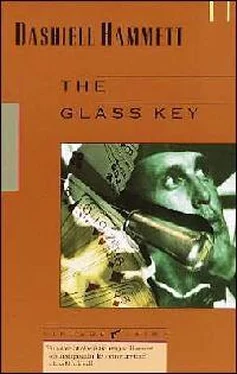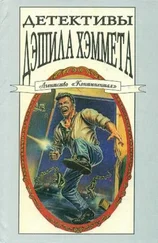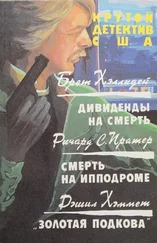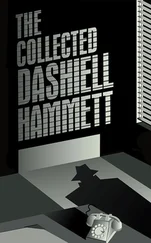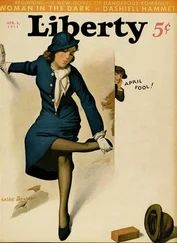Дэшил Хэммет - The Glass Key
Здесь есть возможность читать онлайн «Дэшил Хэммет - The Glass Key» весь текст электронной книги совершенно бесплатно (целиком полную версию без сокращений). В некоторых случаях можно слушать аудио, скачать через торрент в формате fb2 и присутствует краткое содержание. Год выпуска: 1931, Жанр: Крутой детектив, на английском языке. Описание произведения, (предисловие) а так же отзывы посетителей доступны на портале библиотеки ЛибКат.
- Название:The Glass Key
- Автор:
- Жанр:
- Год:1931
- ISBN:нет данных
- Рейтинг книги:5 / 5. Голосов: 1
-
Избранное:Добавить в избранное
- Отзывы:
-
Ваша оценка:
- 100
- 1
- 2
- 3
- 4
- 5
The Glass Key: краткое содержание, описание и аннотация
Предлагаем к чтению аннотацию, описание, краткое содержание или предисловие (зависит от того, что написал сам автор книги «The Glass Key»). Если вы не нашли необходимую информацию о книге — напишите в комментариях, мы постараемся отыскать её.
The Glass Key — читать онлайн бесплатно полную книгу (весь текст) целиком
Ниже представлен текст книги, разбитый по страницам. Система сохранения места последней прочитанной страницы, позволяет с удобством читать онлайн бесплатно книгу «The Glass Key», без необходимости каждый раз заново искать на чём Вы остановились. Поставьте закладку, и сможете в любой момент перейти на страницу, на которой закончили чтение.
Интервал:
Закладка:
Her eyes opened wide and dark. "Then he did kill him," she said in a small flat voice, but with utter certainty.
He thrust his face down towards hers. "No, my dear," he said in an enraged sugary voice, "he didn't kill him." He held his face near hers. A vicious smile distorted his features.
Firm of countenance and voice, not drawing back from him, she said: "If he didn't I can't understand what difference it makes what I say or how loud."
An end of his mouth twitched up in a sneer. "You'd be surprised how many things there are you can't understand," he said angrily, "and never will if you keep on like this." He stepped back from her, a long step, and put his fists in the pockets of his bathrobe. Both corners of his mouth were pulled down now and there were grooves in his forehead. His narrowed eyes stared at the floor in front of her feet. "Where'd you get this crazy idea?" he growled.
"It's not a crazy idea. You know it's not."
He moved his shoulders impatiently and demanded: "Where'd you get it?"
She too moved her shoulders. "I didn't get it anywhere. I–I suddenly saw it."
"Nonsense," he said sharply, looking up at her under his brows. "Did you see the Observer this morning?"
He stared at her with hard skeptical eyes.
Annoyance brought a little color into her face. "I did not," she said. "Why do you ask?"
"No?" he asked in a tone that said he did not believe her, but the skeptical gleam had gone out of his eyes. They were dull and thoughtful. Suddenly they brightened. He took his right hand from his bathrobe‑pocket. He held it out towards her, palm up. "Let me see the letter," he said.
She stared at him with round eyes. "What?"
"The letter," he said, "the typewritten letter — three questions and no signature."
She lowered her eyes to avoid his and embarrassment disturbed, very slightly, her features. After a moment of hesitation she asked, "How did you know?" and opened her brown hand‑bag.
"Everybody in town's had at least one," he said carelessly. "Is this your first?"
"Yes." She gave him a crumpled sheet of paper.
He straightened it out and read:
Are you really too stupid to know that your father murdered your lover?
If you do not know it, why did you help him and Ned Beaumont in their attempt to fasten the crime on an innocent man?
Do you know that by helping your father escape justice you are making yourself an accomplice in his crime?
Ned Beaumont nodded and smiled lightly. "They're all pretty much alike," he said. He wadded the paper in a loose ball and tossed it at the waste‑basket beside the table. "You'll probably get some more of them now you're on the mailing‑list."
Opal Madvig drew her lower lip in between her teeth. Her blue eyes were bright without warmth. They studied Ned Beaumont's composed face.
He said: "O'Rory's trying to make campaign‑material out of it. You know about my trouble with him. That was because he thought I'd broken with your father and could be paid to help frame him for the murder— enough at least to beat him at the polls — and I wouldn't."
Her eyes did not change. "What did you and Dad fight about?" she asked.
"That's nobody's business but ours, snip," he said gently, "if we did fight."
"You did," she said, "in Carson's speakeasy." She put her teeth together with a click and said boldly: "You quarreled when you found out that he really had — had killed Taylor."
He laughed and asked in a mocking tone: "Hadn't I known that all along?"
Her expression was not affected by his humor. "Why did you ask if I had seen the Observer?" she demanded. "What was in it?"
"Some more of the same sort of nonsense," he told her evenly. "It's. there on the table if you want to see it. There'll be plenty of it before the campaign's over: this is going to be that kind. And you'll be giving your father a swell break by swallowing—" He broke off with an impatient gesture because she was no longer listening to him.
She had gone to the table and was picking up the newspaper he had put down when she came in.
He smiled pleasantly at her back and said: "It's on the front page, An Open Letter to the Mayor."
As she read she began to tremble — her knees, her hands, her mouth— so that Ned Beaumont frowned anxiously at her, but when she had finished and had dropped the newspaper on the table and had turned to face him directly her tall body and fair face were statue‑like in their immobility. She addressed him in a low voice between lips that barely moved to let the words out: "They wouldn't dare say such things if they were not true."
"That's nothing to what'll be said before they're through," he drawled lazily. He seemed amused, though there was a suggestion of anger difficultly restrained in the glitter of his eyes.
She looked at him for a long moment, then, saying nothing, turned. towards the door.
He said: "Wait."
She halted and confronted him again. His smile was friendly now, ingratiating. Her face was a tinted statue's.
He said: "Politics is a tough game, snip, the way it's being played here this time. The Observer is on the other side of the fence and they're not worrying much about the truth of anything that'll hurt Paul. They—"
"I don't believe that," she said. "I know Mr. Mathews — his wife was only a few years ahead of me at school and we were friends — and I don't believe he'd say anything like that about Dad unless it was true, or unless he had good reason for thinking it true."
Ned Beaumont chuckled. "You know a lot about it. Mathews is up to his ears in debt. The State Central Trust Company holds both mortgages on his plant — one on his house too, for that matter. The State Central belongs to Bill Roan. Bill Roan is running for the Senate against Henry. Mathews does what he's told to do, and prints what he's told to print."
Opal Madvig did not say anything. There was nothing to indicate that she had been at all convinced by Ned Beaumont's argument.
He went on, speaking in an amiable, persuasive tone: "This" — he flicked a finger at the paper on the table—"is nothing to what'll come later. They're going to rattle Taylor Henry's bones till they think up something worse and we're going to have this sort of stuff to read till election's over. We might just as well get used to it now and you, of all people, oughtn't to let yourself be bothered by it. Paul doesn't mind it much. He's a politician and—"
"He's a murderer," she said in a low distinct voice.
"And his daughter's a chump," he exclaimed irritably. "Will you stop that foolishness?"
"My father is a murderer," she said.
"You're crazy. Listen to me, snip. Your father had absolutely nothing to do with Taylor's murder. He—"
"I don't believe you," she said gravely. "I'll never believe you again."
He scowled at her.
She turned and went to the door.
"Wait," he said. "Let me—"
She went out and shut the door behind her.
7
Ned Beaumont's face, after a grimace of rage at the closed door, became heavily thoughtful. Lines came into his forehead. His dark eyes grew narrow and introspective. His lips puckered up under his mustache. Presently he put a finger to his mouth and bit its nail. He breathed regularly, but with more depth than usual.
Footsteps sounded outside his door. He dropped his appearance of thoughtfulness and walked idly towards the window, humming Little Lost Lady. The footsteps went on past his door. He stopped humming and bent to pick up the sheet of paper holding the three questions that had been addressed to Opal Madvig. He did not smooth the paper, but thrust it, crumpled in a loose ball as it was, into one of his bathrobe‑pockets.
He found and lit a cigar then and, with it between his teeth burning, stood by the table and squinted down through smoke at the front page of the Observer lying there.
Читать дальшеИнтервал:
Закладка:
Похожие книги на «The Glass Key»
Представляем Вашему вниманию похожие книги на «The Glass Key» списком для выбора. Мы отобрали схожую по названию и смыслу литературу в надежде предоставить читателям больше вариантов отыскать новые, интересные, ещё непрочитанные произведения.
Обсуждение, отзывы о книге «The Glass Key» и просто собственные мнения читателей. Оставьте ваши комментарии, напишите, что Вы думаете о произведении, его смысле или главных героях. Укажите что конкретно понравилось, а что нет, и почему Вы так считаете.
